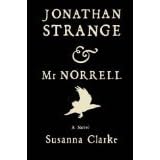
Kingdom of the Wicked, a stand-alone novel by the Leviathan / Stickleback team of Ian Edginton and D'Israeli, has much in common with their other joint works, featuring dreamlike recreations of an England long passed into fiction. It concerns an author of children's books who has recently been suffering from terrible seizures and awakening in a fairytale dreamland that he had constructed as a boy. But the land is at war with a powerful enemy, and the imaginary friends with whom he'd once played have been hardened by decades of brutality and ugliness.
This is not much of a complaint, but I found the book to be much more thrilling before the mystery of what is happening in Castrovalva was revealed. It never becomes by-the-numbers, apart from some ponderous "final confrontation" threats between the villain and the hero, but there is a feeling of inevitablity which Edginton and D'Israeli have periodically subverted (notably in Scarlet Traces and the first series of Stickleback) with more success than here. They are much more successful in capturing and subverting the feel of A.A. Milne and Great War-era fiction in establishing a sense of place to ground Castrovalva, and D'Israeli's art is, as ever, masterful. Recommended.

"It is the task of the Book to bear the words. Which I do. It is the task of the Reader to know what they say."
"But the last Reader is dead!"
If you are like me, you've probably seen this book a few times and heard a good word about it here and there, but never quite made the jump to buying it. I was not completely certain what to expect in this alternate history of magic in the period of the Napoleonic Wars, but within fifteen pages, I was completely captivated, and when I realized one morning last week that my reading had taken me past the halfway point of the book, I was briefly saddened to learn that my time with these people and places would soon be finished.
Susannah Clarke plays with the conventions of period novels with a real sense of wit and joy. Jane Austen is evoked in some gushing quote on the cover, but there's a sense of Dickens as well, especially when you hit chapters in which minor characters from much earlier in the narrative resurface for what feels on its face like a fill-in episode in this month's edition of a serialized novel, but readers will quickly learn how elements from these chapters will become important later on. Also, Clarke uses footnotes - hundreds of them - to fill in the great backstory of England's magical past, refer to books that we cannot quite read and, from time to time, hint towards future developments.
I do love an author who can foreshadow as well as Clarke does while simultaneously drawing reader's attention away from the slight-of-hand she is using. About fifty pages from the end, I finally realized something which chould have been as plain as the nose on my face about six hundred pages previously in the hands of a lesser author, setting me up for a tremendously thrilling and satisfying conclusion. This was certainly a book I didn't object to staying up very late to finish.
Those popular booksellers Barnes & Noble offer a $7 edition of this mammoth book in their discounted section. Since I can be every bit as fussy about books as Mr Norrell himself, I find it disagreeable to hold this edition, which evokes nineteenth-century printing with its ever-so-uneven paper width. If you are less of a nitpicker than me, then I assure you that the investment shall be amply rewarded with this highly recommended volume.
(Originally posted January 14, 2009 at hipsterdad's LJ.)
No comments:
Post a Comment